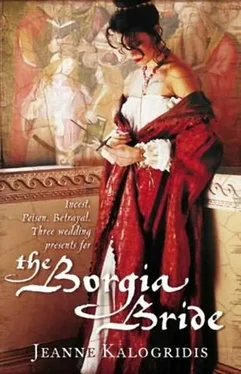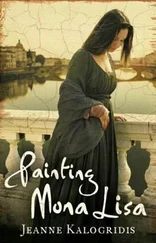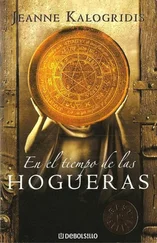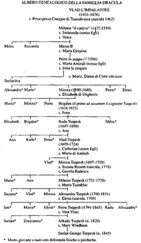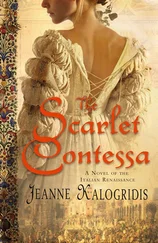Little Rodrigo misses you, too; he asks constantly for his Tia Sancha. You would not recognize him: he has grown so! Each day he comes to resemble his father more and more .
There is little news to tell: the days are all the same, and blur together. But I must report that, not long after my arrival, Cesare and his army came and made camp here one night. I was obliged to entertain him, and the more outstanding members of his company .
He travels now with the artist and inventor, Leonardo da Vinci. Don Leonardo came to supper that night. He is a kindly old man, eccentric-looking, with a crooked nose, large, startling eyes, and long white hair and beard which are both unkempt. Despite his age, his mind is exceptionally keen. Cesare says he is an engineering genius, and has proven of great use in terms of using explosives for the demolition of bridges. I only know that he was very gentle and possessed of a fine sense of humour. While we sat at dinner, he called for parchment, and produced a quill and ink which he keeps on his person at all times; while Cesare spoke at length about the military campaign, Don Leonardo proceeded to draw. Rodrigo appeared, and showed quite an interest: I was about to take the child back to the nursery and chide him for bothering a guest, but Don Leonardo was very sweet, and let Rodrigo sit on his knee and watch while he made his sketch .
Back to Cesare, and his campaign. I must mention here another member of his company, a certain Niccolo Machiavelli-a tight-lipped, unpleasant man-who scarcely touched his supper because he was recording furiously in a diary while my brother spoke, as though Cesare’s words were pearls .
My brother told me he took the properties surrounding Bologna and Florence easily; the great cities signed over fortresses and estates out of fear of his army, since it has been strengthened by a gift of ten thousand men from King Louis. Cesare now says he is invincible, and can march through Italy and seize whatever lands he wishes .
Once my brother was done speaking, at the end of the supper, Don Leonardo presented me with a completed sketch. I was very flattered, for it was a rendering of me as I had appeared at the table; yet I was surprised to see how very sad my own expression was, for I had been making an effort to seem bright and lively for my guests .
Beneath my portrait, Don Leonardo had written a line from the poet Sannazaro:
Per pianto la mia carne si distilla.
My flesh melts away with my tears .
He is very wise, Don Leonardo. He sees through outward appearances to the very soul of the person, and has the magical talent of conveying what is in a heart using mere parchment and ink. There are many other things I could tell you, but a letter is not the best means for conveying what I wish to say. I shall have to wait until I can see you again in person .
I pray for you each night, sister, and think of you with great fondness. Never did I find a better or more trustworthy friend. May God keep you well .
Affectionately,
Lucrezia
I folded the letter back up and put it for safekeeping inside my little copy of Petrarch. I understood that Lucrezia could not fully share her thoughts with me; I understood her allusions to her great sorrow, her hints that she was overwhelmed by guilt, her statement that she was ‘obliged’ to entertain her brother-which meant she had done so quite unwillingly. She had hinted at her longing for forgiveness.
I could not, would not respond. What news had I to share? That I had gone mad with grief, due in part to her treachery? That the only thing that brought me joy was the thought of revenge against Cesare?
Later, I privately showed the letter to Dorotea de la Crema. Her lips thinned as she read; at last, she nodded. ‘Cesare is seizing whatever lands he wishes,’ she confirmed. ‘And whatever women, too. I have heard the latest news; when he conquers a new town, he seizes all the noblewomen for his travelling harem. And every night, he chooses a new woman to humiliate.’
Such news fuelled my hatred, and made me dream at night: of seizing the sword that still impaled my heart, of using it to strike out, with a flash of steel, and sever Cesare’s head from his body in a single, avenging blow. Of smiling as I watched the head topple and roll away from the falling corpse, of watching the most evil blood to fill any veins flow freely as the Tiber.
Oddly, in the dream, I heard my brother’s voice cheerfully repeat: You have simply tried to kill the wrong man .
Summer 1501-Early Winter 1503

***
The egg has cracked , Alfonso said. He was dressed, as always, in pale blue satin; his visage was uncharacteristically stern, a warning. And this time it cannot be repaired…
I woke with a gasp to a humid August morning, and the sound of Esmeralda’s cries out in the antechamber. I ran out to find her huddled over, clutching her heart, as if she was in the grip of a fierce pain.
‘Esmeralda!’ I rushed to her side and caught her fleshy upper arms. She was older now, and quite plump; I thought at once of Ferrante’s attack of apoplexy, and helped her to a chair. ‘Sit, darling…’ I rose, found wine and poured a goblet, then raised the rim to her lips. ‘Here, drink. Then the guard will fetch the doctor.’
She took a sip, coughed, then with a dismissive wave of her hand, wheezed, ‘No doctor!’ She looked up at me, her eyes full of grief, and said wretchedly, ‘Oh, Donna Sancha! If only this were something a doctor could help…’ She drew a gasping breath, then added, ‘Do not call the guard. I just spoke to him. He brought news…’
‘What has happened?’ I demanded.
‘Our Naples,’ she replied, wiping her eyes with a corner of her pendulous sleeve. ‘Oh, Madonna, it breaks my heart…Your uncle, Federico, was forced from the throne into exile. King Ferdinand the Catholic and King Louis-they conspired and joined their armies; now they share rule of Naples. Today, the French and Spanish banners both fly over the Castel Nuovo. Ferdinand is now regent of the city proper.’
I released a long breath as I knelt slowly beside her. Even though Alfonso’s death had stolen from me my reason and joy, there had always remained the faint but distant hope that someday, I might return home-to the royal palace, to Federico and the brothers, and the family I had known. Now that, too, had been taken from me.
The royal House of Aragon was no more.
I was too stunned for speech. Donna Esmeralda and I remained silent, grieving in silence for some moments until I said knowingly, a corner of my lip twitching with hatred: ‘And Cesare Borgia…he rode with King Louis’ army into the city.’
She looked at me, astonished. ‘Why, yes, Madonna…How did you know?’
I did not answer.
I fell again into a numb despair, one that even Esmeralda and the doctor’s draught could not pierce. My only respite came during my walks with Donna Dorotea-who now did almost all of the speaking while I listened, mute and uninterested.
One day she brought news of Lucrezia, who had returned to Rome that autumn in response to the adamant summons of her father. Dorotea relayed an encounter between the Pope and his daughter. In the papal throne room, in the presence of Lucrezia’s ladies, the Pope’s servants and the chamberlain, His Holiness told Lucrezia that he and Cesare had studied the suitors lined up for her hand. They had chosen one: Francesco Orsini, the Duke of Gravina. Orsini had proposed marriage to Lucrezia a few years earlier, but had been rejected in favour of my brother.
Читать дальше
Конец ознакомительного отрывка
Купить книгу
